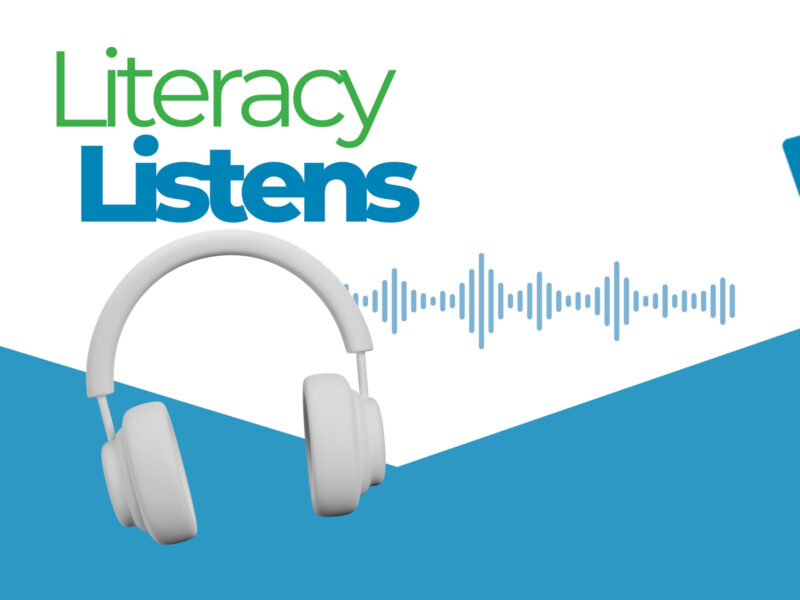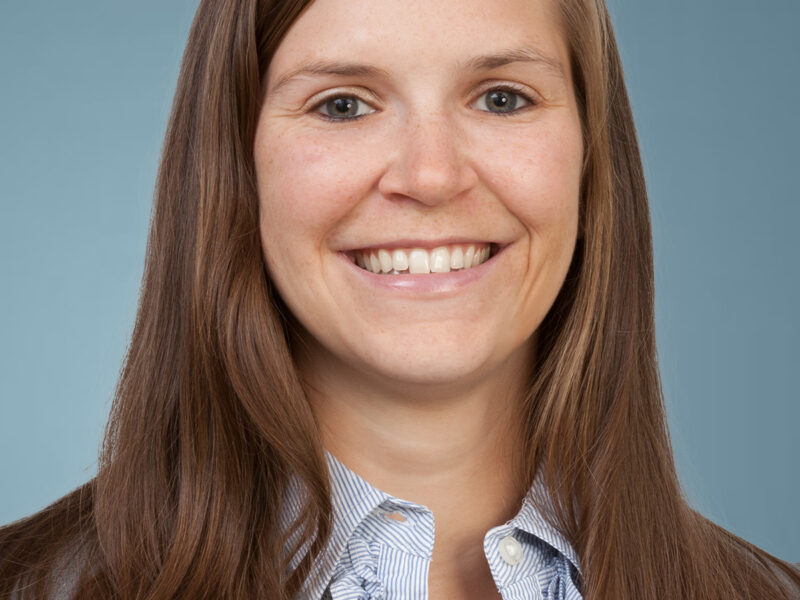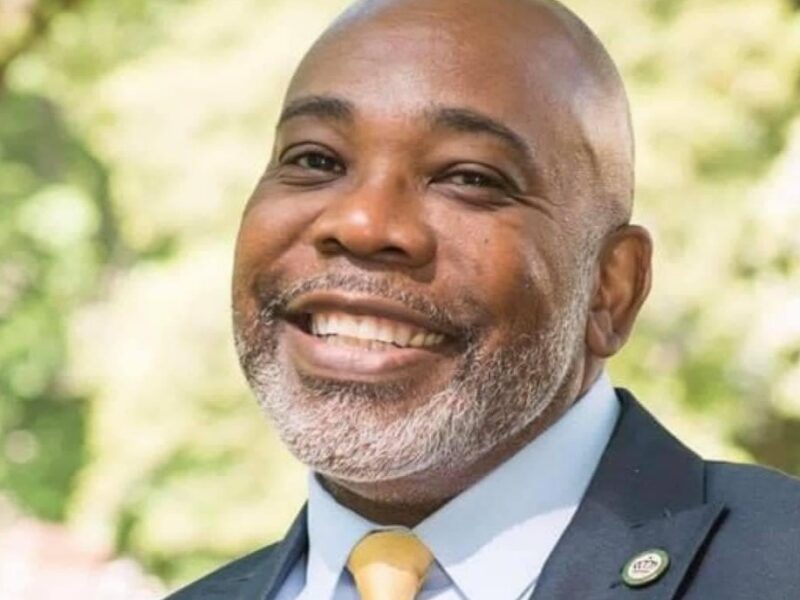
‘Doing good with it’
Matt and Elizabeth Magan are sharing their financial success with local families – and changing lives in the process
Vicente Olmos Velazco’s parents are unabashedly proud of their son.
His mom, a housekeeper, tells her clients in Charlotte’s most affluent neighborhoods where her son went to college. His dad, a construction worker, has a bumper sticker on his truck announcing: “Proud parent of a Dartmouth student.”
Mr. Olmos and Mrs. Velazco immigrated to the U.S. from Mexico with middle-school educations, yet they encouraged their son and daughter to go to college.
Vicente listened. But even as an athlete (soccer and tennis) and valedictorian of his Harding University High class of 2019, he didn’t have a “dream” school. “I didn’t have much guidance,” he said. “So, I was of the mentality that whatever school offered me the most financial assistance was the one I’d attend.”
In 2017, he met someone who convinced him he needn’t dream small. That was Matt Magan – who, at the time, had his own dream of helping high-achieving high school students from under-resourced families get into elite universities.
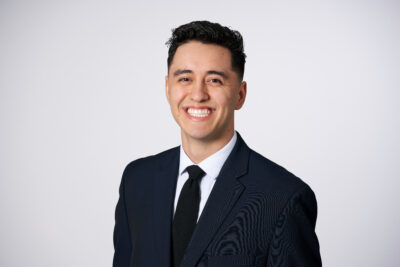
Vicente Olmos Velazco, Dartmouth Class of 2023, one of CLTRising’s early success stories.
It was Vicente’s junior year, when college prep is in full swing. Matt set Vicente up with two tutors – one for English and one for math – and they met weekly.
Vicente already had an impressive 1200 on the PSAT. But with the help of his tutors, his score jumped to 1480. Students in what would become the nonprofit CLTRising typically see a 200- to 300-point increase in SAT scores, and some CLTRising scholars have improved their score by over 400 points.
At the time, the initiative wasn’t yet an official nonprofit organization. Matt and Elizabeth would directly contact IB coordinators at Title I high schools in the area to ask if there were any high-achieving students who could use tutoring resources for the college admissions process.
Back then, Matt and Elizabeth hosted practice SAT sessions, graded the tests and helped with the college application process.
A big idea is born
Matt Magan co-founded a family office investment firm, Ten Oaks Group, which buys small, underperforming divisions of large companies and then tries to grow those divisions into profitable stand-alone businesses.
Even with demanding jobs, Matt and Elizabeth were interested in ways they could merge entrepreneurial creativity with a giving mindset.
When he heard Eric Eisner, son of former Disney CEO Michael Eisner, on a podcast discussing the YES (Young Eisner Scholars) program he founded in Los Angeles, it was a Eureka moment.
“I remember thinking: This is how you merge an entrepreneurial mindset with philanthropic giving,” he said. “My wife, Elizabeth, and I started our own version of this program about a month later. We did much of the tutoring and help with college essays ourselves the first year to understand the process firsthand.”
Matt and Elizabeth arrived in Charlotte after graduating from the Wharton School shortly after the Chetty report was published. That’s the informal name for the landmark study, Where is the Land of Opportunity? The Geography of Intergenerational Mobility in the United States, led by Raj Chetty that ranked Charlotte last in intergenerational mobility. The report galvanized city leaders to do something.
The Magans were similarly motivated.
“There was a lot of chatter about how to help the broader community,” Elizabeth said. “Matt and I were working intense jobs, and we were thinking about how our surplus time and financial resources could best help the city of Charlotte. We were both raised with the tithing mentality; we believe there’s inherent moral value in sharing a portion of what you earn. Neither of us were raised with wealth, so it’s hard to feel comfortable enjoying it yourself if you don’t feel you’re doing good with it.”
‘You can change … someone’s life’
That “doing good” was helping hard-working students get the best post-secondary education available.
“The university you ultimately attend can be a catalyst for improving your quality of life and lifetime earnings potential,” Matt said. “For a relatively small investment in tutoring resources during the college admissions preparation process, you can help a student change the trajectory of their life. It felt like the best investment we could make.”
The Magans’ relationship with Foundation For The Carolinas has become, as Matt described it, “a vehicle for allocating gains from certain Ten Oaks Group investments to the Foundation and then onto our philanthropic endeavors, primarily CLTRising.”
At the recommendation of an attorney at Moore & Van Allen, the Magans came to Foundation For The Carolinas for assistance establishing their philanthropic planning. They contributed equity interests in certain Ten Oaks’ companies to the Foundation so that, as those companies provided investment returns, a portion of the gain would ultimately go into CLTRising to fund the program’s endeavors in college access and family unit success.
Giving business interests – the type of philanthropic giving that works best for them – can yield big tax benefits. And clearly, it has a major philanthropic impact.
Foundation For The Carolinas has facilitated more than $250 million in such gifts over the past nine years.
“The Magans came to us knowing exactly where they wanted their generous gifts to go,” said Sara Piner, the Foundation’s senior vice president, Philanthropic Advancement. “Not everyone has such a clear vision, and for those who don’t, we’re happy to help guide them, based on their interests, to organizations that need their support.”
“We work with many philanthropic-minded individuals and families,” she continued, “but few who are as intimately involved with their causes as Matt and Elizabeth. They do more than share their generosity; they’re incredibly hands-on in meeting and working with the scholars whose very lives they hope to change. We hold them up as an example of the big impact one or two people can have when they’re committed to making a difference.”
Eliminating obstacles
Elizabeth worked as a tutor when she was in college, but tutoring students from Title I schools was an eye opener. She and Matt discovered there were more barriers to college admission than SAT scores and essays.
“We learned firsthand about the obstacles some students deal with in their everyday lives,” she said.
Many didn’t have transportation and relied on the city bus. Some typed their college essays on their phones because they didn’t have computers. Others were dealing with housing insecurity and incarcerated parents. There were so many things missing from Maslow’s hierarchy in many of these students’ lives. Applying to college is far down the priority list if you’re moving from one motel to another every week.
Of those hurdles, transportation was the easiest to solve. The Magans decided they’d eliminate it as a barrier. “We’re always going to meet students where they are,” Matt said. “The tutor will meet at or near a student’s home, at school, at a library. We never want a lack of transportation to be a deterrent.”
What started as a college prep effort became a life raft. Elizabeth said, “At first, we didn’t know our role would include navigating all these situations.”
Instead of concluding it was too much to manage, they doubled down and launched the Student-Family Partnerships division of CLTRising to deliver a social work-inspired, personalized wraparound service model. The program tactically provides coordinated case management, support and resources to families with young children, strengthening both individual and family success. The hope is that, Matt said, “One day, the younger children within these families will be eligible for and interested in our college access program.”
Helping entire families succeed
The Magans hired Chapman Archer, who has a master’s degree in social work, as executive director of the Student-Family Partnership program.
“Chapman has relationships with many nonprofits,” Elizabeth said. “She often hears of families that are extremely hard-working and have bright children, but that may have hit a speed bump along the way.”
She’s forged new relationships, too – with Sharon Academy preschool, for instance. A partnership with Williams Buick GMC & Subaru has sourced reliable, affordable cars for families without transportation.
“A lack of long-term transportation hinders so much,” Chapman said. “You can offer an Uber, Lyft or a bus pass, but that’s only helping with one situation.”
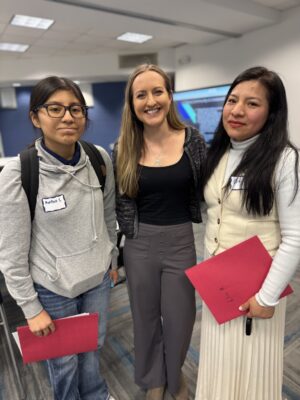
Maryanne Hogan (center), Executive Director of Academic Services & College Planning, with CLTRising scholars.
CLTRising will even walk their clients through the process of getting car insurance, subsidize it and provide gas gift cards.
“If there’s a need,” Chapman said, “we don’t like to say no. Whatever the family deems a barrier – rent, bill paying, transportation – we try to identify a local resource for them. And if we can’t find something, we have allocated funds to fill those gaps.”
One recent success story involves a parent with two children whose car was beyond repair. CLTRising bought a vehicle for the family, and the parent paid what they could. “That changes the parent’s ability to drop off her kids at school daily and continue to get to work,” Chapman said. “That $10,000 vehicle is an absolute quality-of-life unlock for them. The parent has personal and professional goals that would have been set back for some time without the luxury of easily getting around day to day.”
Elizabeth marvels at the resiliency and ingenuity of some of the families they work with.
“Our families have navigated well with limited resources,” she said. “One family has been dealing with incredibly high rent, didn’t qualify for any housing assistance and had some consumer debt. Over the past year, the parent focused on growing her business, addressing her credit score, and we were able to help her with a downpayment on her first home.”
She added, “Whatever challenging thing is happening in our families’ lives, we try to help resolve it so they can keep moving forward.”
Creating opportunities
“We create opportunities for families,” Chapman said, “but we don’t have a one-size-fits-all approach. “Our vision goes beyond helping families make ends meet. We want both generations we serve to dream, heal, achieve and to feel more connected to Charlotte. This takes long-term commitment from everyone involved.”
CLTRising currently serves about 20 families through the Student-Family Partnership Programs. Chapman serves 10 families as a case manager – she wears multiple hats – and the other case manager serves another 10 families. “That may not sound like a ton, but we’re serving every member of that household,” she said.
Matt hopes to double that capacity to nearly 40 families over the next three years.
Vicente noted, “Now, CLTRising is helping students who are much younger – and their families – get the resources to thrive earlier on. So, those students are a step ahead when the college process comes around.”
Making big dreams possible
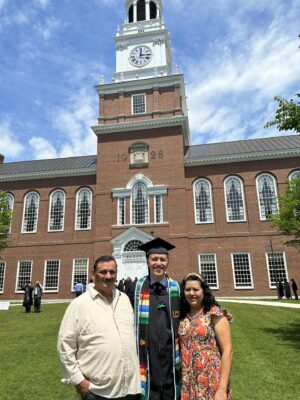
Vicente celebrates his Dartmouth graduation alongside his parents.
Vicente graduated from Dartmouth, debt-free, in 2023 with a degree in economics. He then worked as a consultant in New York for about a year. “But I missed Charlotte and my family,” he said, “so I moved back in July 2024 and now work in the Charlotte office of a global asset management firm.”
Graduate business school is on Vicente’s radar, and he’ll start studying for the GMAT soon. This time around – given what the Magans proved was possible – he does have dream schools, including Stanford, Yale and Wharton – the Magans’ alma mater.
Matt and Elizabeth have inspired more success stories like Vicente’s, and they are continually striving to facilitate the next one. No matter how massive the challenges they encounter, they’re committed to improving lives.
“The problems we are seeking to alleviate in Charlotte through CLTRising – college access and family unit success – are much larger than us,” Matt said. “Our impact won’t be a unilateral solve by any means. But I would say to anyone contemplating an entrepreneurial philanthropic solution: Don’t let that dissuade you. Progress is progress.”


